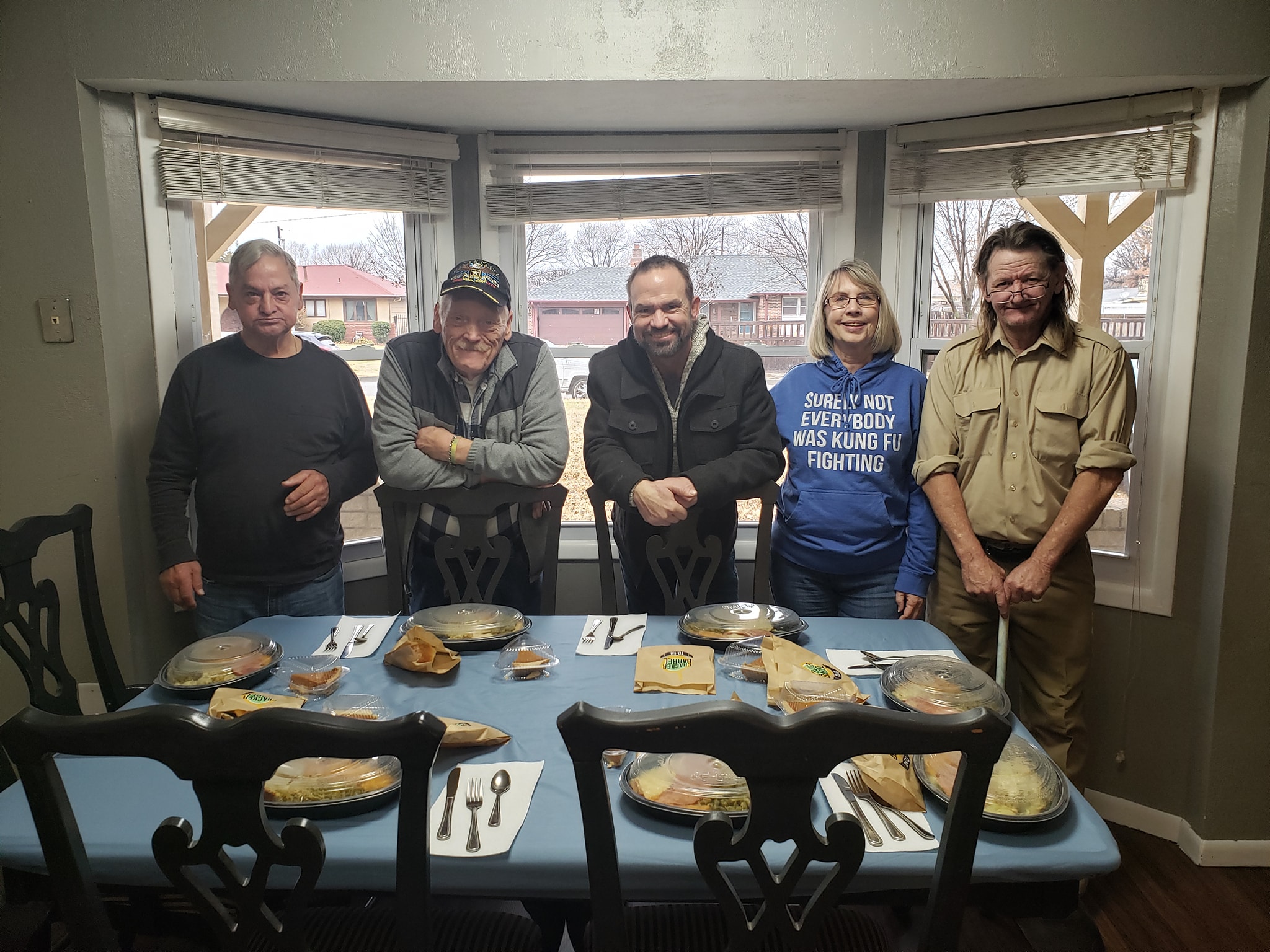“Without Passageways, I would be homeless. Or worse.”
— Military veteran
Sometimes even heroes need a hand. That’s the idea behind an organization that aims to keep homeless veterans from living and dying on the streets of Wichita.
Nearly seven years ago, Jennifer Garrison and her mother, Susan Moellinger, left their careers to start Passageways, which operates a group home for homeless veterans and an outreach program for other veterans in need.
Now the organization is close to launching an even more ambitious project — Homefront Veteran Neighborhood, a gated village of 30 cottage homes, with more possible later.
Garrison and Moellinger say they were initially motivated by news of a veteran found dead under a bridge. At the time, Garrison was a volunteer coordinator for a hospice program and Moellinger was executive director at Sedgwick Plaza, a group home for seniors. They were in the habit of talking by telephone each morning while on their way to work.
“The more we talked about it, we got to wondering why or how that happened,” Moellinger said.
They spoke to representatives of the Veterans Administration, United Way and other organizations about resources for homeless veterans and were surprised at what they found.
“There simply was no place for homeless veterans to go to get on their feet,” Garrison said.
They talked some more, Moellinger said, “and it just kept back to our hearts that something needed to be done. We prayed a lot, sought lots of counsel and decided to start Passageways.”
The Passageways group home is a ranch-style house in west Wichita that can accommodate up to eight men at a time. Homeless veterans are usually referred to Passageways by the Wichita police department’s homeless outreach team (known as H.O.T.), the VA or fellow veterans.
“We get a lot (of referrals) from veterans telling other veterans, that whole ‘I’ve got your back,’” Garrison said.
The participants — or “heroes,” as Garrison and Moellinger always refer to them — share four bedrooms, a kitchen and large backyard with a grill and picnic table. They are assigned cooking and cleaning duties.
“It gets you ready for a home environment,” Leo Johnson, a former Marine and Passageways graduate, said in a KPTS segment on the program. “It prepares you for independent living.”
Many of the veterans tell stories of being assaulted and robbed while living on the street. In addition to a safe roof over their heads, Garrison and Moellinger help veterans qualify for VA, Social Security and other benefits for which they are eligible, find jobs, get their driver’s license and obtain more permanent housing. They get help for substance abuse, if needed, and counseling in money management. Through mid-October, 94 men had “graduated” from the program, ranging in age from 28 to 91. When the men move into their own apartments, Passageways supplies them with furniture, appliances, food and other needs — with moving services donated by Two Men and a Truck. “It’s a pretty amazing event,” Garrison said. Some veterans have had cars donated to them.
World War II veteran Charles Johnson became one of Passageway’s best-known graduates after police discovered him living in his broken-down car during a summer heat wave.
In a 2017 interview, Johnson marveled at the “30, 40 bars of soap” that were suddenly available to him in the Passageways home. “I’m delighted to be here until I can get back on my feet again,” he said. “Sometimes life just knocks you down a little too far.”
Garrison and Moellinger say the biggest challenges for them have been understanding the trauma experienced by some veterans and in keeping the nonprofit going financially. The program relies on donations by individuals and businesses for all of its revenue. In 2017, a telethon staged by KAKE-TV raised $125,000, which allowed Passageways to buy the house it had been renting.
For participants, the hurdles are many, and not all successfully complete the program.
“Their challenges are staying away from the temptation that brought them to homeless, whatever they may be,” Moellinger said.
Planning for the future often needs to be re-taught.
“We’ve had guys who were on the street for 12 years. If they get money in their hands, they have to spend it right away or somebody is going to take it from them,” Moellinger said.
“They are learning who they are on this side of the battle,” Garrison added. “They’re not the same (as in the military). What are their goals?”
The next goal for Garrison and Moellinger is to break ground on the Homefront Veteran Neighborhood. Passageways has a contract on land in southwest Wichita along with a commitment from Star Lumber Co. and the Wichita Area Builders Association to build 30 cottage-style homes in a gated community. This will allow Passageways to serve female veterans and vets with families as well. The homes will be small, but some will be big enough for families with three children.
A campaign to raise the rest of the money needed for the veterans village was delayed by the coronavirus pandemic, but Garrison and Moellinger are determined to make it happen as soon as possible.
“We owe our heroes everything,” Moellinger said. “Without them volunteering to go and fight, we wouldn’t be able to celebrate the freedoms that we have.”
For more info:
To learn more about Passageways, visit passagewaysltd.org or call 316-721-1316.









